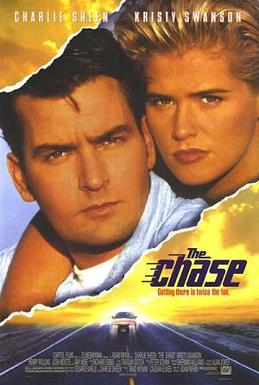
Vic Edwards (Burt Reynolds) was once the biggest movie star in the world.
At times, that’s hard to believe. Vic may have started out as a stunt man before moving on to star in westerns and action movies but Vic is now 80 and he moves slowly and with a permanent slouch. At times, he appears to be so frail that you wonder how he even manages to get out of bed in the morning. Though he still possesses the acerbic wit for which was once famous, the words now come out a lot slower and his voice is tinged with pain that is both physical and emotional. It’s been a while since Vic appeared on a movie set. After years of being a self-described asshole, Vic now spends most of his time alone. His only friend appears to be his aging agent, Sonny (Chevy Chase).
When Vic receives an invitation to attend a film festival in Nashville and accept a career achievement award, Vic goes in hopes of not only getting his ego stroked but also visiting some of the places where he grew up. It’s only once Vic has arrived that he discovers that the film festival is basically a group of wannabe hipsters hanging out in the back of a bar. Under the direction of Doug (Clark Duke), the film festival has previously given lifetime achievement awards to everyone from Al Pacino to Robert De Niro. Vic’s the first recipient to actually show up.
After a night of watching a younger version of himself and answering inane questions about his career and his turbulent personal life, Vic comforts himself by getting drunk and yelling at Doug and his friends. The next day, while the film festival continues, Vic get Doug’s sister, Lil (Ariel Winter), to drive him around Tennessee. Vic wants to visit the places of his youth. As for Lil, she just wants to get rid of her cranky passenger so that she can deal with her emotionally abusive boyfriend.
As you probably already guessed, in The Last Movie Star, Burt Reynolds may have been cast as a character named Vic Edwards but he was basically playing himself. (Director Adam Rifkin has said that he would have abandoned the film if Reynolds had turned down the role) When Vic watches himself onscreen, the clips are from Burt Reynolds’s old movies. When Vic falls asleep and has a dream in which he confronts his younger self, the film uses footage from Deliverance and Smoky and the Bandit. (“Slow down!” Vic yells as the cocky, younger version of him speeds down a country road.) When Vic considers his own mortality, it’s obvious that the aging and frail Reynolds was doing the same thing.
At the start of the film, both Vic and Reynolds seem so infirm that you wonder how he’ll ever make it through the weekend. But, as the film progresses, an interesting thing happens. Before our eyes, both Vic and the actor playing him become stronger. His confidence returns and, as Vic confronts the past, we finally start to see some hints of the old charisma that once made him the world’s biggest film star. As we watch the film, we realize that his body may be weak but his mind is still sharp. We come to realize that Vic now understands that he will die someday but he’s still not going to give up. He may accept his own mortality but he’s not going to surrender to it.
That Burt Reynolds passed away just a few month after The Last Movie Star was released adds an extra poignance to his performance in the film. The Last Movie Star has its flaws. The pacing is inconsistent and, when it comes to Vic relationship with Lil, the film too often falls back on anti-millennial clichés. In the end, the film works best as a tribute to its star. The film argues, quite convincingly, that if anyone deserved to be known as the last movie star, it was him.
 Psycho Cop is back!
Psycho Cop is back!